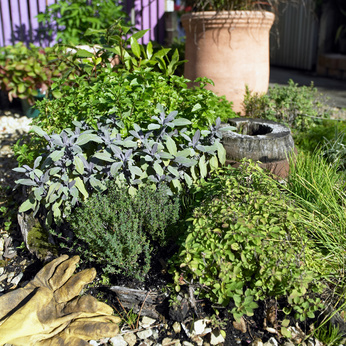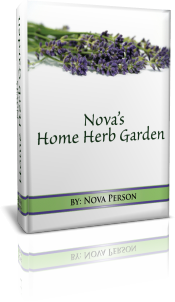Beginner’s Guide to Growing Your First Fresh Herb Garden
 If you are fortunate enough to have room for an outdoor home herb garden, you will find that it will provide you with a wonderful and tasty hobby. That said, if you are planning to use the same area from one year to the next, you will need to make sure that you start your garden off with the best types of preparation. In general, you will find that paying attention to a few details now will enable you to enjoy healthy and vibrant plants for years to come.
If you are fortunate enough to have room for an outdoor home herb garden, you will find that it will provide you with a wonderful and tasty hobby. That said, if you are planning to use the same area from one year to the next, you will need to make sure that you start your garden off with the best types of preparation. In general, you will find that paying attention to a few details now will enable you to enjoy healthy and vibrant plants for years to come.
Soil pH and Compost
As you may be aware, some plants do better in acidic soils, while others require neutral to base settings. While you are choosing herbs to plant in your garden, you should pay careful attention to their pH needs. It is also very important to test several areas in your garden in order to find out the pH of each spot. Chances are, you will be very surprised to find a wide range of pH levels in various areas. You should also perform this test each time you turn over the soil in the garden in order to make sure that the soil composition remains the same.
How to perform soil testing?
Soil testing is done in a laboratory where they measure the pH and other mineral and chemical components of the soil. All you need to do is obtain a soil sample that you can submit for testing. The key thing in obtaining a soil sample is to get soil where your plants will be planted and where the roots will actually grow. This means that you need to get soil from the subsoil layer. There are kits available for this procedure but you can also make one. You can use an old PVC pipe or any hollow tube about 1 to 2 inches in diameter for this purpose. You may want to make an opening on the side of the tube to make it easier to remove the soil later on.
Dug a little in the area where you’re going to obtain samples to remove the top soil and push the tube to at least 12 inches deep into the soil. Then pull the tube out and take out the soil inside the tube. Repeat the procedure until you have about 2 cups of soil. If you have a large garden, you may want to take samples from different areas to have a more accurate measurement for the entire garden.
Check your local extension office for listing of laboratories where you can mail your soil samples. Some state university extension offices also offer soil testing and testing kits.
It is also very important to make sure that you can add compost to the soil instead of conventional fertilizers. You will find that compost is much safer. It will also help to increase nutrient levels in the soil for a much longer period of time than regular fertilizers. As may be expected, you should make sure that you have a suitable pail that can be used for this purpose.
Water Retention and Drainage
Even though you may be interested in having a wide range of herbs in your garden, you will find that many of them have special water and drainage needs. Therefore, you should also evaluate the soil for clay content and water retention capacities. From there, you can prepare certain areas by adding peat moss to break up clay. You can also use other additives that will improve drainage. If you group plants together that have similar water needs, it will be much easier to alter the soil in certain areas for each plant type.
Lighting and Temperature
In general, you will be well served by choosing a location that has some shelter, as well as a few spots where there is plenty of sunlight. This will provide you with plenty of choices when it comes to the placement of herbs according to their lighting and temperature needs. In some cases, you may want also want to make sure that you have room for cold frames, or other heat retaining devices that will make it easier to extend the growing season.
When you want to grow enough herbs for daily use, plus store away extra quantities, it may be of some help to use an outdoor garden. Unfortunately, if you do not pay enough attention to preparing the soil before planting, you may find that your herbs will not grow as well as you expected. At the same time, if the soil is not balanced properly, you will notice that these problems get worse year after year.
See here for a more complete information on how to grow herbs into a beautiful, bountiful and fresh herb garden.
Related posts:
- How to Grow Herbs in Outdoor Planters If you’re interested to know how to grow herbs but...
- Start an Herb Garden To start an herb garden is not as difficult as...
- Tips for Harvesting Herbs As you may be aware, some herbs are more potent...
- Windowsill Herb Garden One of the best things about windowsill herbs is that...
- How To Plant An Herb Garden Learning how to plant an herb garden is easier than...
Grow Fresh Herbs Care Mini-Course
Get your free mini-course on how to grow fresh, flavorful and scented herbs
Just enter your first name and e-mail address, and we'll email you your first lesson right now.



**Double-check your email for accuracy to ensure you receive your free mini course.
Privacy Assured:
Your email address is never
shared with anyone

